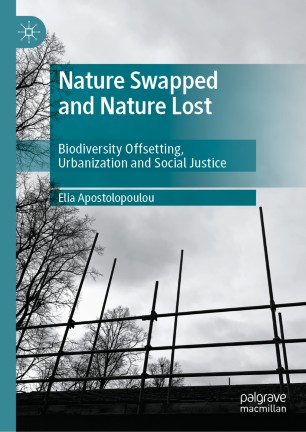

Most ebook files are in PDF format, so you can easily read them using various software such as Foxit Reader or directly on the Google Chrome browser.
Some ebook files are released by publishers in other formats such as .awz, .mobi, .epub, .fb2, etc. You may need to install specific software to read these formats on mobile/PC, such as Calibre.
Please read the tutorial at this link: https://ebookbell.com/faq
We offer FREE conversion to the popular formats you request; however, this may take some time. Therefore, right after payment, please email us, and we will try to provide the service as quickly as possible.
For some exceptional file formats or broken links (if any), please refrain from opening any disputes. Instead, email us first, and we will try to assist within a maximum of 6 hours.
EbookBell Team

4.3
58 reviewsThis book unravels the profound implications of biodiversity offsetting for nature-society relationships and its links to environmental and social inequality. Drawing on people’s resistance against its implementation in several urban and rural places across England, it explores how the production of equivalent natures, the core promise of offsetting, reframes socionatures both discursively and materially transforming places and livelihoods.
The book draws on theories and concepts from human geography, political ecology, and Marxist political economy, and aims to shift the trajectory of the current literature on the interplay between offsetting, urbanization and the neoliberal reconstruction of conservation and planning policies in the era following the 2008 financial crash. By shedding light on offsetting’s contested geographies, it offers a fundamental retheorization of offsetting capable of demonstrating how offsetting, and more broadly revanchist neoliberal policies, are increasingly used to support capitalist urban growth producing socially, environmentally and geographically uneven outcomes.
Nature Swapped and Nature Lost brings forward an understanding of environmental politics as class politics and sees environmental justice as inextricably linked to social justice. It effectively challenges the dystopia of offsetting’s ahistorical and asocial non-places and proposes a radically different pathway for gaining social control over the production of nature by linking struggles for the right to the city with struggles for the right to nature for all.